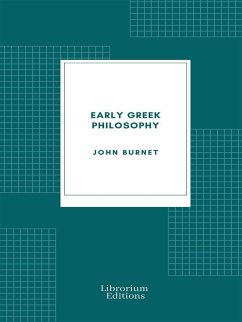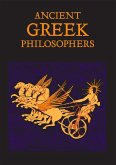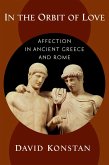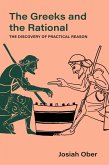I. It was not till the primitive view of the world and the customary rules of life had broken down, that the Greeks, began to feel the needs which philosophies of nature and of conduct seek to satisfy. Nor were those needs felt all at once. The traditional maxims of conduct were not seriously questioned till the old view of nature had passed away; and, for this reason, the earliest philosophers busied themselves mainly with speculations about the world around them. In due season, Logic was called into being to meet a fresh want. The pursuit of cosmological inquiry beyond a certain point inevitably brought to light a wide divergence between science and common sense, which was itself a problem that demanded solution, and moreover constrained philosophers to study the means of defending their paradoxes against the prejudices of the unscientific many. Later still, the prevailing interest in logical matters raised the question of the origin and validity of knowledge; while, about the same time, the breakdown of traditional morality gave rise to Ethics.
Dieser Download kann aus rechtlichen Gründen nur mit Rechnungsadresse in A, B, BG, CY, CZ, D, DK, EW, E, FIN, F, GR, HR, H, IRL, I, LT, L, LR, M, NL, PL, P, R, S, SLO, SK ausgeliefert werden.









